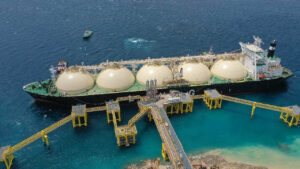Gas turbine backlog expected to delay PHL LNG expansion – BusinessWorld Online
THE ORDER backlog among major suppliers of gas turbines is expected to hamper Philippine plans to transition its energy industry to liquefied natural gas (LNG), the Institute for Energy Economics and Financial Analysis (IEEFA) said.
“For emerging Asian economies like Vietnam and the Philippines, where (the transition to gas is) already behind schedule and struggling to compete economically with coal and renewables, global turbine shortages present yet another obstacle to deployment,” according to a report written by Sam Reynolds, lead LNG/Gas researcher for IEEFA Asia.
Major gas turbine manufacturers — GE Vernova, Siemens Energy, and Mitsubishi Heavy Industries — face “extensive backlogs” and delivery timelines of up to eight years, due to increased demand in the US and Middle East, IEEFA said.
The report found that 80 gigawatts (GW) worth of orders were placed in 2024, far exceeding the combined capacity of about 30 GW for the three largest original equipment manufacturers.
“As a result of higher gas turbine demand in wealthier regions, turbine prices are rising, and price-sensitive economies once again find themselves unable to access key gas and LNG supplies,” IEEFA said.
The Philippine Energy Plan set a goal of 2.4 GW worth of additional gas-fired capacity by 2028. About 10.7 GW of planned gas capacity is at various stages of development.
The IEEFA said that proposed greenfield LNG-fired power projects mostly remain in early development stages and are unlikely to have procured gas turbines.
“With long delivery timelines and higher costs, LNG power plants have become even less competitive with cheaper, domestically sourced renewable energy and storage. Every year of delay for LNG-fired power plants means that less LNG will be needed in the long run.” — Sheldeen Joy Talavera
